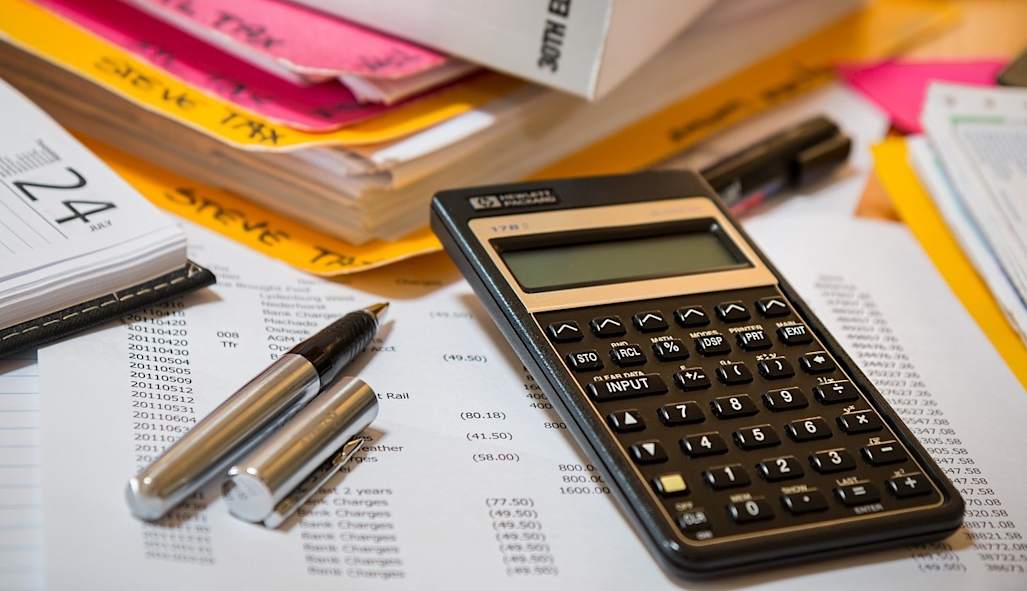
Cloud accounting
Mastering practice-wide control with Intuit Accountant Suite
Simple, smart accounting software - no commitment, cancel anytime

TAX AND PENSIONS
Self Assessments can seem like a minefield when you’re new to the process or even if you’ve been filing tax returns for years. Without any guidance, it’s easy to make mistakes or miss opportunities to save time and money. In this blog post, we’ll share 10 lesser-known tips about the Self Assessment process to help make the experience smoother and stress-free.
Various scenarios can fall within HMRC’s Self Assessment criteria, even if you’re a full-time employee. Tax returns are required if you’ve earned any untaxed money from secondary incomes like renting out a property, commission and tips, investments, and more. Some other scenarios you’ll need to submit a tax return include:
Needing to pay the High Income Child Benefit Charge
Having paid Capital Gains Tax
Having a taxable income of more than £150,000
Becoming a new partner in a business partnership
Having received any untaxed income over £2,500
You can also choose to file a self-assessment tax return to claim income tax relief and pay voluntary National Insurance contributions.
Find out if you need to submit a Self Assessment with this guide.
Some might assume that you’ll be notified if you need to submit a self-assessment tax return. However, it’s often up to the individual to check and determine whether you need to file a Self Assessment and then inform HMRC. Of course, accounting professionals can advise on and confirm this. There are some instances when HMRC will notify you about filing a tax return, such as if you’ve already registered as self-employed, have a history of filing tax returns, or if HMRC is aware of your additional sources of income. HMRC may also get in touch if you’re a high earner (income over £150,000 annually) or need to file a tax return under a High Income Child Benefit Charge.
You may believe that if you have any additional income you’re required to submit a Self Assessment, regardless of how much you earn in the tax year. However, for various scenarios, certain income thresholds dictate the need to file a tax return. However, for those self-employed or sole traders, it’s only necessary if the earnings were more than £1,000 (before taking off anything you can claim tax relief on). If earning money from renting out a property, it doesn’t need to be reported on a Self Assessment tax return unless the income was more than £2,500 after allowable expenses or £10,000 before allowable expenses. However, you still need to notify HMRC if the total income from renting a property is more than £1,000 a year. High earners are also required to file a tax return, but this is only needed if the total taxable income is more than £150,000 per year.
If your situation has changed and you no longer need to file a tax return, you still need to inform HMRC. Otherwise, HMRC will expect to receive a Self Assessment, and if it’s not sent before the deadline, they’ll likely issue a penalty. However, HMRC will still need to agree with your assessment and confirm before the deadline, so be careful not to leave it too late. Even if you’ve already told HMRC that you’re no longer self-employed, they may still expect Self Assessments. If you’ve missed the deadline to inform them of your change in circumstances, you may still need to submit a tax return to ensure you aren’t fined.
Certain scenarios can put you into the Self Assessment criteria, even if you don’t have tax to pay. For example, you may still need to file a self-assessment tax return to:
Claim a tax refund
Claim tax relief on business expenses
Claim relief for charitable donations
Pay pension contributions
Pay voluntary Class 2 National Insurance Contributions
Filing a tax return can also be beneficial to ensure your financial records are up-to-date and compliant with tax laws.
Those required to submit a Self Assessment can do so via a paper or online form. Filing a paper tax return might be more suitable for people who have difficulty accessing the internet or using technology. However, the deadline for sending a paper Self Assessment is 31st October — three months earlier than the online deadline of 31st January. When filing the paper version, ensure you also incorporate postage time, as late filing fees apply from 1st November, and send it tracked as you don’t get an immediate confirmation like with online forms.
While the deadlines for filing Self Assessments are firm and can result in penalties if missed, it doesn’t mean you can’t file before these dates. In fact, Government research revealed almost 300,000 people file in the first week of the tax year. However, our Self Assessment survey suggested that over 45% of respondents only planned on beginning their tax return the month it was due. Preparing early and filing ahead of time avoids the last-minute rush and the risk of receiving late fees. It also accelerates the tax rebate process if you’re owed, but not the tax payment deadline, so you still have the same amount of time to pay your tax.
It’s advised to set aside an amount of income each month to pay for your tax down the line. However, there are many reasons why people don’t, from lacking organisational skills to struggling to make ends meet and needing every penny. So, it can be quite confronting to see the final amount you owe during the Self Assessment period. However, if you’re struggling to pay this straight away, you can set up a Self Assessment payment plan. To be eligible, you’ll need to have filed your latest tax return and be within 60 days of the payment deadline, so you’ll still need to avoid leaving this to the very last minute. You’ll also need to owe £30,000 or less and not have any other payment plans or debts with HMRC. Alternatively, if you’re planning ahead and want to take the pressure off of deadline month, you can set up a different payment plan that allows you to pay weekly or monthly towards your next Self Assessment tax bill. You can also decide the amount you want to contribute so that you can pay it off at your own pace.
Understand the different ways to pay Self Assessment tax with this guide.
Self Assessments can be difficult to navigate, but it doesn’t need to be such a headache if you’re able to get informed and seek professional advice. Staying organised, making small steps to make big savings, and taking responsibility for your HMRC status can help you avoid unnecessary anxiety and penalties.
The information on this website is provided free of charge and is intended to be helpful to a wide range of businesses. Because of its general nature the information cannot be taken as comprehensive and they do not constitute and should never be used as a substitute for legal, accounting, tax or professional advice. We cannot guarantee that the information applies to the individual circumstances of your business. Despite our best efforts it is possible that some information may be out of date. Any reliance you place on information found on this site or linked to on other websites will be at your own risk.
Subscribe to get our latest insights, promotions, and product releases straight to your inbox.
9.00am - 5.30pm Monday - Thursday
9.00am - 4.30pm Friday